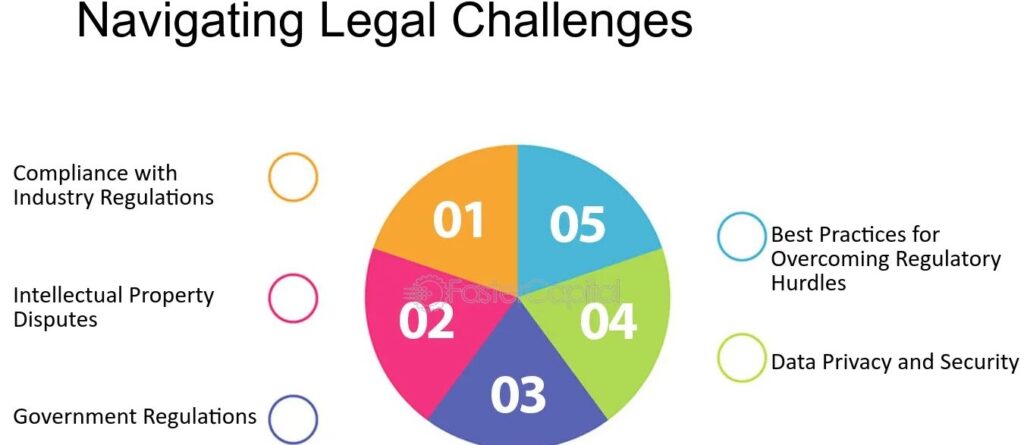Real estate is a lucrative sector with enormous potential for investment and business, but it also comes with its share of legal challenges. Whether you are buying, selling, leasing, or developing real estate, understanding the legal aspects of the industry is crucial for avoiding costly mistakes. Navigating these legal hurdles, especially as a beginner, can seem overwhelming, but with the right knowledge, you can protect your investments and ensure your success in the real estate market. In this guide, we will explore common legal challenges in real estate and offer strategies for addressing them.
1. Understanding Real Estate Contracts
One of the most fundamental aspects of any real estate transaction is the contract. Whether it’s a sale agreement, lease agreement, or construction contract, real estate deals are often formalized through written agreements that specify the terms and conditions of the transaction. Understanding the contract language and the legal obligations it entails is crucial.
Common Issues with Real Estate Contracts:
- Ambiguities in Terms: Contracts that are unclear or ambiguous can lead to disputes down the road. It’s essential to read through every clause and seek clarification on terms that are not fully understood.
- Non-Compliance: Ensuring that both parties comply with the contract\’s stipulations is vital. Failure to adhere to deadlines, payment schedules, or conditions can result in legal disputes or termination of the deal.
- Breach of Contract: If one party fails to meet the agreed-upon terms, a breach of contract may occur, leading to legal action.
How to Avoid Contract Issues:
- Consult with a Real Estate Attorney: A qualified real estate lawyer can review contracts and provide guidance to ensure you fully understand your rights and obligations.
- Ensure Clarity: Make sure the contract is clear, and every term is thoroughly explained before signing.
2. Zoning Laws and Land Use Regulations
Before purchasing property or embarking on a development project, understanding zoning laws and land use regulations is essential. Zoning laws govern how land in certain areas can be used, and violations can lead to hefty fines, legal disputes, and even the forced dismantling of structures.
Common Zoning Challenges:
- Zoning Violations: If the property’s current use does not conform to zoning regulations, you may be subject to fines or forced to alter your plans. Understanding the local zoning ordinances beforehand can prevent this.
- Rezoning Requests: If you wish to use a property differently than its current zoning allows (e.g., turning residential property into commercial property), you must file a rezoning application, which may or may not be approved by the local authorities.
- Building Codes: Even if zoning laws are followed, properties must comply with local building codes. Non-compliance can lead to expensive modifications or delays in the project.
How to Avoid Zoning Problems:
- Research Local Zoning Laws: Research the zoning laws of the area in which you are buying or developing property to ensure your plans align with local regulations.
- Work with a Land Use Attorney: If you have any doubts about zoning laws, work with an attorney who specializes in land use to navigate any potential issues.
3. Property Title Issues
Property title issues are a common source of legal challenges in real estate transactions. A clear title is necessary to prove ownership and avoid disputes. However, there are various types of title issues that can complicate your investment.
Common Title Problems:
- Liens and Encumbrances: If there are unpaid debts attached to the property, such as tax liens or mortgages, these can complicate the transfer of ownership.
- Title Disputes: Disagreements over the rightful owner of the property can result in costly legal battles.
- Clouded Title: If there are unresolved legal issues related to ownership (e.g., inheritance disputes), the title may be clouded and make it difficult to sell or finance the property.
How to Avoid Title Issues:
- Obtain Title Insurance: Title insurance protects you from future title disputes and helps ensure that the property you are buying is free from any legal claims.
- Conduct a Title Search: Before closing a deal, hire a title company to conduct a thorough title search to identify any potential issues.
4. Tenant and Landlord Rights
For those involved in rental properties, tenant and landlord rights are essential areas of real estate law. Laws governing rental agreements vary by jurisdiction, so understanding the rules surrounding landlord-tenant relationships is critical to avoid legal disputes.
Common Landlord-Tenant Disputes:
- Eviction Issues: Evicting tenants without following the proper legal procedures can lead to significant legal consequences. Each state or country has its own set of rules regarding eviction, including notices and court proceedings.
- Security Deposit Disputes: Disagreements over the return of security deposits are common and can lead to litigation if not handled correctly.
- Maintenance Responsibilities: Landlords must meet their obligations to maintain the property, while tenants are expected to take care of the property during their tenancy. Disputes may arise when either party fails to uphold their responsibilities.
How to Avoid Tenant-Landlord Disputes:
- Understand Local Laws: Familiarize yourself with local tenant-landlord laws and regulations to avoid disputes and ensure compliance.
- Create Clear Rental Agreements: Make sure the rental agreement clearly defines both parties’ responsibilities, including maintenance, payment terms, and eviction procedures.
- Communicate with Tenants: Maintaining clear communication with your tenants can help resolve issues before they escalate.
5. Environmental Issues and Disclosure Laws
Environmental issues in real estate have become increasingly important, particularly with the rise of environmental sustainability and awareness. Issues such as contaminated land, hazardous materials, and flood-prone properties can pose significant legal and financial risks.
Common Environmental Concerns:
- Lead Paint and Asbestos: Properties built before 1978 may have lead-based paint or asbestos, both of which require special handling and disclosure. Failing to disclose these risks can lead to lawsuits.
- Contaminated Land: If the land has been contaminated with hazardous materials or waste, remediation costs can be high. Sellers are typically required to disclose any known environmental hazards before selling.
- Flooding and Natural Disasters: Properties located in flood zones or areas prone to natural disasters may have insurance implications and require special disclosures.
How to Avoid Environmental Problems:
- Conduct Environmental Assessments: Before purchasing property, consider conducting an environmental site assessment to identify potential issues such as contamination or hazardous materials.
- Follow Disclosure Laws: Ensure compliance with local laws regarding the disclosure of environmental hazards. Properly disclose known risks to buyers or tenants.
6. Dispute Resolution and Litigation
Legal disputes in real estate are not uncommon, and knowing how to handle them is key to avoiding serious financial consequences. Disputes may arise due to contract breaches, property damage, or disagreements over terms.
Common Causes of Disputes:
- Breach of Contract: If one party fails to fulfill their contractual obligations, it can lead to a breach of contract dispute.
- Property Damage: Damage to property during a transaction, particularly during construction or renovation, can lead to disputes over who is responsible for repairs.
- Boundary Disputes: Disagreements over property boundaries and easements can lead to costly litigation.
How to Handle Legal Disputes:
- Use Mediation or Arbitration: Mediation and arbitration are less expensive alternatives to traditional litigation and can help resolve disputes more quickly.
- Consult an Attorney: If a dispute arises, seek legal advice from a real estate attorney who can guide you through the process and help you achieve a favorable resolution.
Conclusion
Navigating legal challenges in real estate requires a comprehensive understanding of contracts, local laws, tenant rights, title issues, environmental concerns, and dispute resolution methods. As a beginner in real estate, it’s essential to equip yourself with the knowledge and resources necessary to avoid legal pitfalls. Always seek professional advice when necessary, and stay informed about local regulations to ensure your investments are protected and compliant. With the right preparation, you can confidently venture into the world of real estate and minimize legal risks along the way.
External Resources:



